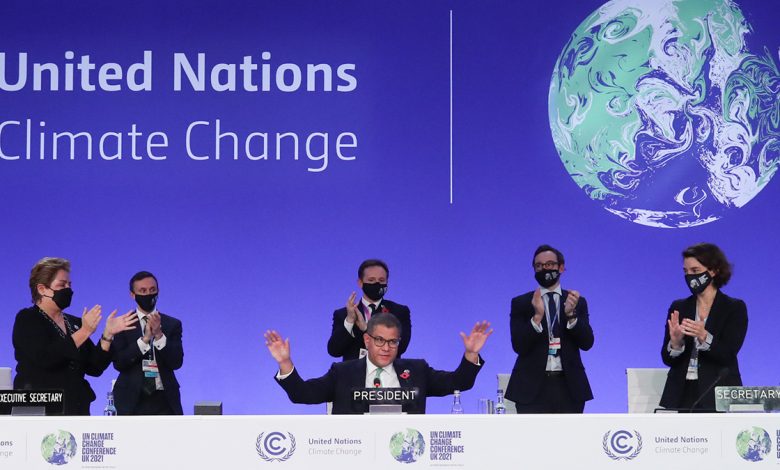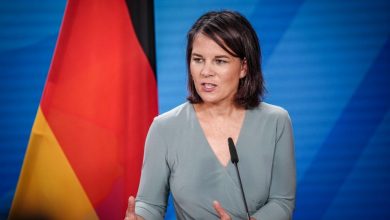Climate Conference 2022: What you should know about the Sharm El-Sheikh Climate Summit?

The countdown has begun for the United Nations Climate Summit Cop27, which will be hosted by the Egyptian city of Sharm El-Sheikh from the 6th of next November, until the 18th of the same month.
Attention is directed to this summit, in which world leaders and high-ranking officials of the United Nations will participate, as well as thousands of environmental activists from all over the world.
What is the United Nations Conference on Climate Change?
It is an annual summit attended by 197 countries in order to discuss climate change, and what these countries are doing to confront and address this problem.
The conference is part of the United Nations Framework Convention on Climate Change, an international treaty signed by most countries in the world with the aim of limiting the impact of human activity on the climate.
This conference is the twenty-seventh since the agreement entered into force on March 21, 1994. The conference will be held this year in Sharm El-Sheikh, which is located in southern Sinai and overlooks the Red Sea, from November 6 to November 18. .
Why is it held this year in Sharm El Sheikh?
The host country for the conference is chosen according to a system of rotation between different continents. Last year, Egypt submitted a request to host this year’s session of the conference, and was chosen as the only African country that expressed its desire to host it.
At that time, Egyptian President Abdel Fattah El-Sisi announced that his country would work to make the conference “a fundamental turning point in international climate efforts in coordination with all parties for the benefit of Africa and the world at large.”
What does the world want from this summit?
At last year’s summit in Glasgow, UK, participants reached an agreement aimed at reducing the environmental risks to the planet.
The agreement is the first of its kind to explicitly reduce the use of coal, which increases greenhouse gas emissions.
The agreement also provides for work to reduce the rate of gas emissions, and to provide financial support for developing countries to adapt to the consequences of climate change that the planet is witnessing.
The participating countries pledged to return to the meeting this year, to agree to further reduce the rates of greenhouse gases and carbon dioxide emissions, in line with reducing the rate of increase in the planet’s temperature to less than 1.5 degrees Celsius.
At the time, United Nations Secretary-General Antonio Guterres described the agreement as an important step, but not enough. “We must accelerate climate action in order to maintain the goal of limiting the rise in global temperature to 1.5 degrees Celsius,” he said.
Guterres added that it was time to “move into an emergency, end fossil fuel subsidies, phase out coal, set a carbon price, protect vulnerable communities, and meet our $100 billion climate finance commitment. We haven’t met those goals at this conference. But we have some The basic building blocks for progress.
What do developing countries want from this summit?
Developing countries are most vulnerable to the adverse effects of climate change, such as floods, droughts and wildfires. Meeting the needs of these countries will be a focal point of this world summit negotiations.
These countries view themselves as victims of climate change, while contributing modestly to greenhouse gas emissions.
This country is asking rich nations to honor their pledge of $100 billion a year to help them adapt to climate change.
It also required acknowledgment of the damage and losses it had suffered, such as the effects of rising sea levels or frequent floods.
In a statement prior to last year’s climate summit, the group of least developed countries said that “raising global ambition and increasing funds to fight climate change is essential to our survival.”
What role will Egypt play?
In addition to hosting the conference, Egypt is pushing for the major countries to implement their pledges at previous United Nations climate conferences, led by the Paris Agreement signed in 2015 and the Copenhagen Summit Agreement in 2009, where the signatories pledged to pump billions of dollars to help poor countries deal with the impact of climate change.
At last year’s conference in Glasgow, UK, about five hundred global financial services companies promised $130 trillion in investments in line with the goals set out in the Paris Agreement.
In an interview with the BBC, Mahmoud Mohieldin, the climate leader for the Egyptian presidency and the UN Secretary-General’s special envoy for financing the Sustainable Development Goals 2030, warned that the failure of the major countries to fulfill their pledges to provide $100 billion annually to developing and poor countries to confront climate change, may double their contribution. In producing harmful emissions which currently amount to 3% of total global emissions.
“The ball is now in the court of African countries to work on development projects based on green economy and clean energy, and to present them to the private sector, which pledged during the previous Glasgow summit to provide 130 billion dollars to finance these projects,” Mohieldin said.
Observers believe that no matter how many files the people gathered in Sharm El-Sheikh have accomplished, they will have a lot to discuss in the following sessions, especially COP28, which will be held in the United Arab Emirates next year.



